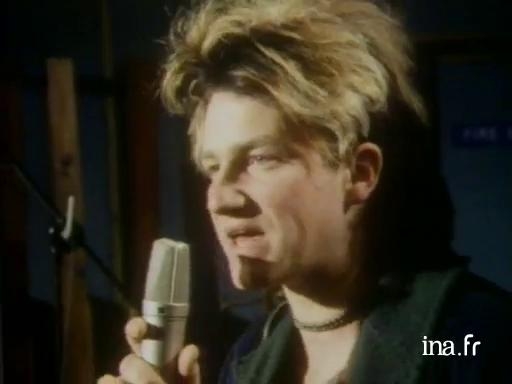U2 and their album War

Information
A report on the group U2 as they released their third album War. Interview with Bono, the group's singer, alternated with extracts from New Year's Day, Sunday Bloody Sunday and Two Hearts Beat as One.
Context
An Irish rock band formed by Paul Hewson (known as Bono) on vocals, David Evans (The Edge) on guitar, Adam Clayton on bass and Larry Mullen Junior on drums - U2 recorded its first two albums at the beginning of the 80s, Boy and October, which earned them positive feedback from both listeners and critics.
However, it was with 1983's War album, with its lyrical and "heroic" songs (Sunday Bloody Sunday and New Year's Day were openly committed to the northern Irish and Polish conflicts), that the band was able to change dimensions, from both an artistic and commercial standpoint. For its 4th album, 1984's The Unforgettable Fire, U2 called on producers Brian Eno and Daniel Lanois and found new life. Bono's political commitments became increasingly explicit, and in 1985, U2 participated in Bob Geldof's Live Aid show against African famine, and in the 1986 Amnesty International tour "A Conspiracy of Hope". In 1987, the band's The Joshua Tree was its biggest international success. They were on the cover of Time Magazine: the U2 phenomenon went far beyond just music.
From the 90s on, the band spent more and more time playing live shows, alternating between conceptual albums (Achtung Baby in 1991, Pop in 1997, All That You Can't Leave Behind in 2000, How to Dismantle an Atomic Bomb in 2004) and triumphant world tours ("The Elevation Tour" in 2001, "Vertigo" in 2005). It is estimated that U2 has sold close to 170 million albums worldwide.


